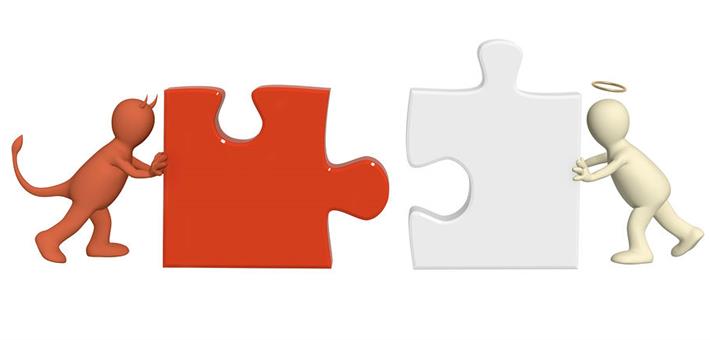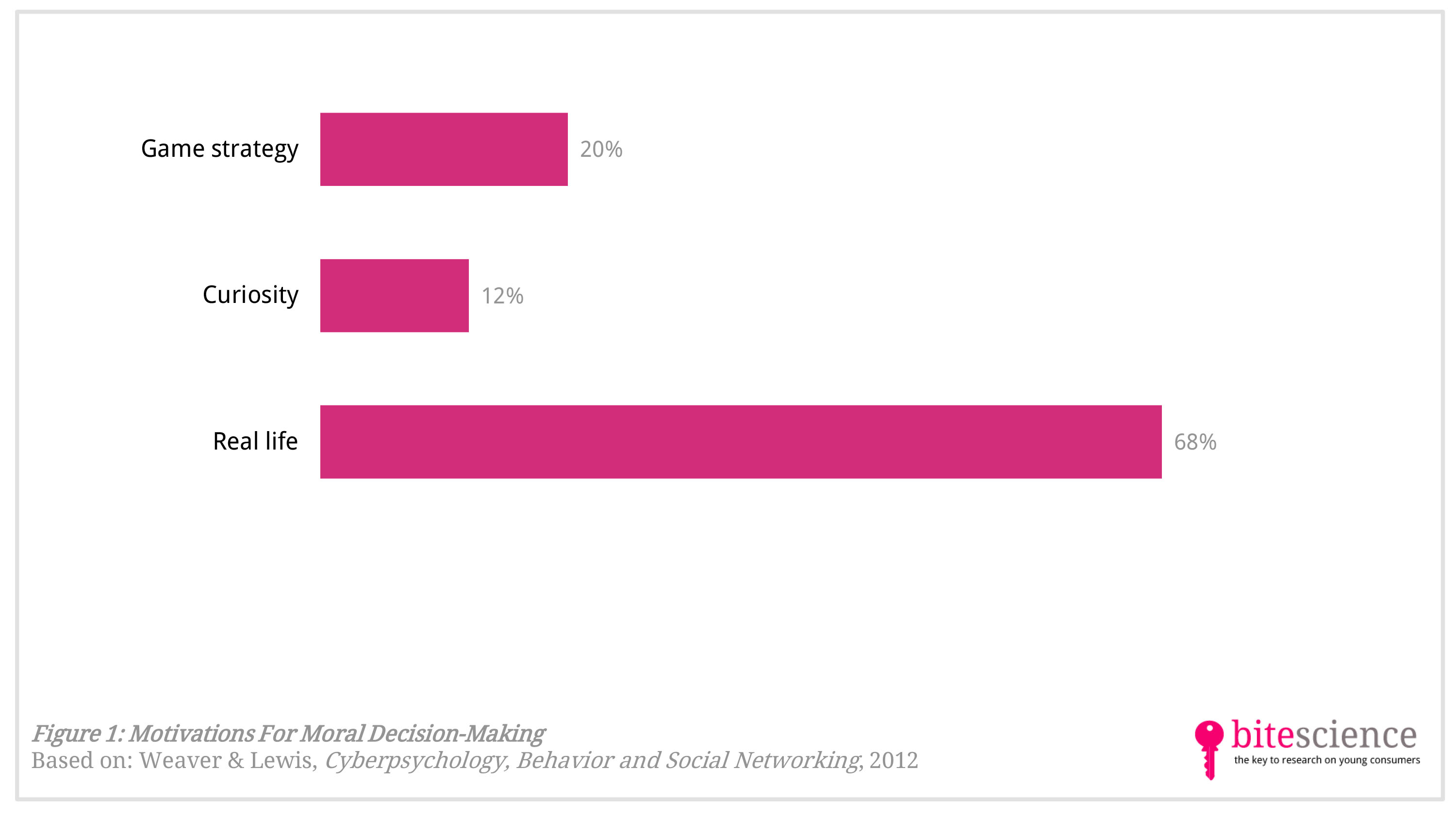
Moral Decisions in Games Mirror Moral Decisions in Real Life
Television and radio are sometimes called ‘lean back media’ and games ‘lean forward media’. The difference lies in the extent to which users have influence on the content of the story. When gaming, gamers become the moral actor of the story. They determine what happens and they have to make moral decisions while playing. A study in Cyberpsychology, Behavior and Social Networking shows that there are many similarities between moral decisions made in games and moral decisions made in real life.
Take aways
- Students morality in real life influences the moral choices when they play games. This means that moral decisions in games are mostly based on decisions people would make in real life.
- Students also experience the same emotions in video games as they would feel in real life, like guilt after acting antisocially in the game.
- Therefore, games can be a promising tool in educating youth about morality, right choices and right behaviors.
Study information
The question?
How do players make moral choices in video games and what are the effects of these choices on emotional reactions to the game?
Who?
75 undergraduate students from a large Midwestern University between the ages of 18 and 24 years (40 men and 35 women). Almost 70% of the students were heavy gamers and played video games more than two hours a day.
Where?
Midwestern United States
How?
Students completed the Moral Foundations Questionnaire (MFQ), with scales like fairness, loyalty, authority, and purity, and also answered questions about their background, media use, and video game use. After the questionnaires, students played the Xbox game called ‘Fallout 3’. They played the first act of the action role-playing video game, because this act contained several moral choices. There were a total of 17 interactions during game play in which the player had to make a choice between a social, an antisocial, and a neutral response. The whole game session was recorded and analyzed for the moral decisions made. After game play, the students completed another questionnaire about their enjoyment and emotional reactions to the game, and about the moral choices they made during the game.
Facts and findings
- More than three-quarters (77%) of the students felt they made moral decisions while playing the game.
- Most students indicated they made moral decisions, based on what they would do in real life, whereas less students made the decisions based on game strategy or curiosity (see Figure 1).
- Students’ morality in real life influenced the moral choices they made in their game play:
- The more students’ morality relied on care and fairness (i.e., the more they based right and wrong on those foundations), the more caring they were in their game play.
- The more students’ morality relied on respect for authority (i.e., the more they based right and wrong on this foundation), the more respect they had for authorities in their game play.
- Students who behaved antisocially in the game, felt more guilt after game play, than students who made moral decisions during game play.
- This guilt, however, did not affect the pleasure students experienced during game play. Antisocial gamers enjoyed the game just as much as moral gamers.
